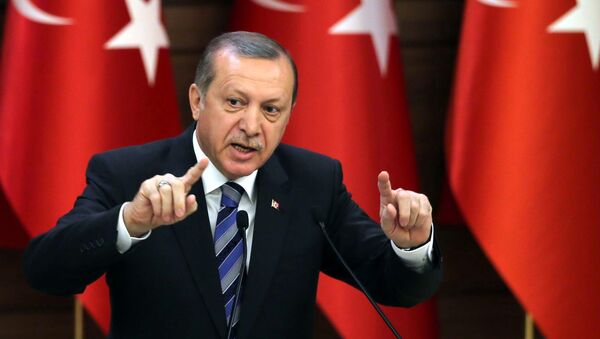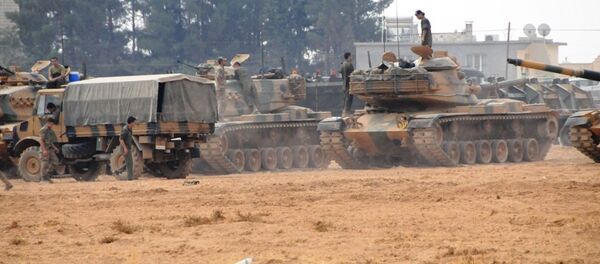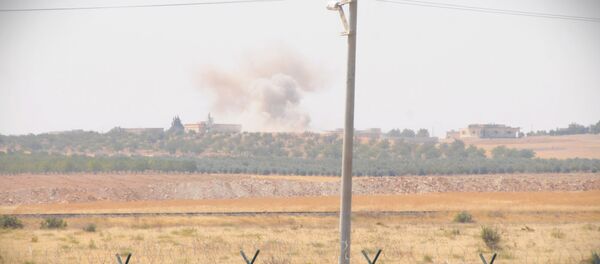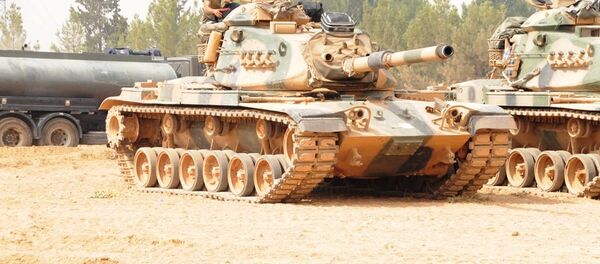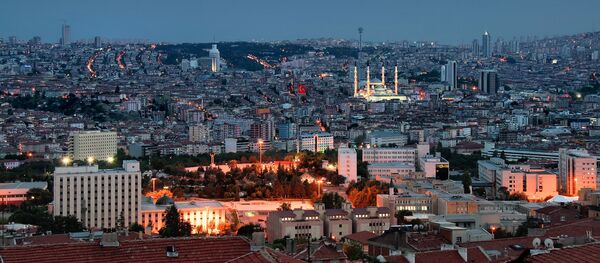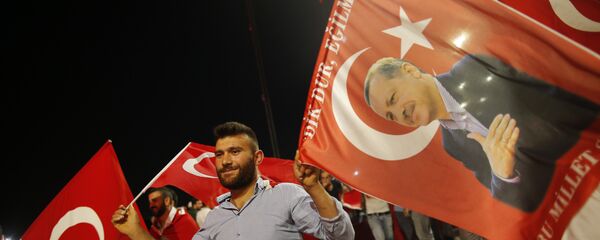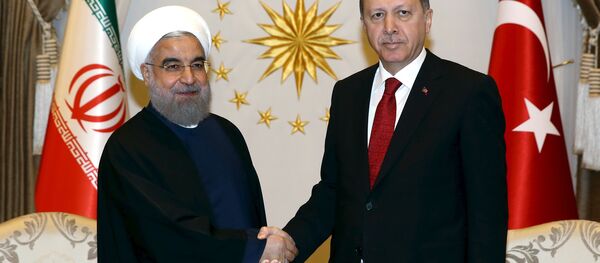US warplanes provided air cover as Ankara-backed Syrian militants took over the border town of Jarablus from Daesh. US Vice President Joe Biden in Ankara on the first day of the assault vowed Washington’s full support to Operation Euphrates Shield.
Erdogan said that the operation had a two-prong aim of “cleansing” the border area of Daesh terrorists as well as pushing anti-Daesh Kurdish fighters back east across the Euphrates to their stronghold in northeastern Syria.
The Kurdish militia mainly comprising the People’s Protection Units (YPG), also referred to as Syrian Democratic Forces (SDF), have up to now been supported by Washington. American patronage seemed to be in doubt this week, as Biden issued a stern warning that US support would be terminated if the Kurds did not retreat eastwards.
Russia and Syria have every right to be alarmed. Despite Erdogan’s rhetoric claiming that the retaking of Jarablus was “to defeat terrorists” and “to protect the territorial integrity of Syria”, the inescapable fact is that Turkish forces with US support have installed their proxy militants in control of a Syrian town and surrounding territory.
Turkey says that it wants to establish a “safe zone” along the Syrian side of the border stretching 100 kilometers and 30 kilometers deep. It is not clear if the Turkish military will stay on Syrian territory to enforce this zone. They might withdraw and designate the task to Ankara-backed Syrian militants comprising the so-called Free Syrian Army and Turkmen fighters. These militants are supposedly in opposition to Daesh jihadists, but their primary objective is to wage war against the Syrian government of President Bashar Assad and his foreign allies – Russia, Iran and Hezbollah.
That is a dramatic development in the nearly six-year Syrian conflict, whereby foreign forces are now actively commandeering swathes of Syria’s territory without any legal mandate.
One may well ask: how did it come to this? Where Turkish and American military – both NATO members – are conducting combat operations on the ground and in the air on Syrian territory. And moreover these foreign forces are assigning what are in effect no-go areas to the Syrian government and its Russian allies.
A Reuters report gives this context to the US-Turkish operation: “A Turkish official said the ground incursion had been in the works for more than two years but had been delayed by US reservations, resistance from some Turkish commanders, and a stand-off with Russia which had made air cover impossible.”
This week’s incursion was the first time since November that Turkish aircraft had crossed into Syrian territory.
The Reuters report added: “Turkey had made the case more strongly to Washington over the past few months, had patched up relations with Russia, and had removed some of the Turkish commanders from their posts after finding they were involved in the coup attempt, paving the way for the operation to go ahead, the [Turkish] official said.”
This raises the testing question: is wily Erdogan playing both the Americans and Russians to pull off what has been Ankara’s long-held objective, namely to set up “safe zones” inside Syria?
In recent weeks, Erdogan has called for a new “anti-terror front” involving Russia and Iran, as well as the US.
Russia and Iran appeared to welcome Turkey’s seeming change of priorities, away from pushing regime change in Syria and instead focussing on combatting terrorist brigades. Last week’s bombing atrocity in Turkey’s southern city of Gaziantep in which 54 people were killed allegedly by jihadists was invoked by Ankara as a tipping point for its military action in Syria this week. Again, that sequence tends to bolster Erdogan’s claim of taking on the terrorists.
Given Washington’s back foot over Erdogan’s insinuations that it had somehow colluded in the failed coup, and given the Turkish president’s conciliatory overtures to Moscow, Tehran and Damascus, it would appear that Ankara is capitalizing on the geopolitical flux in order to prosecute its abiding interests in Syria – to carve out territories that it or its proxies can control.
In short, Erdogan is trying to blindside all the players.
The next question is: what is Ankara seeking to gain?
The jihadists displaced this week from Jarablus, like the brigades displaced earlier this month from Manbij, seem to have disappeared. But to where?
The bigger picture here is that Syrian, Russian, Iranian and Hezbollah forces have over the past year inflicted massive defeats on the foreign-backed regime-change proxies. The momentous battle underway in Aleppo is a harbinger of a terminal defeat for the regime-change covert war.
For Turkey, setting up safe havens north of Aleppo is a vital way to regroup and retool the jihadist mercenaries. Which tends to give the real meaning to this “operation shield”.
